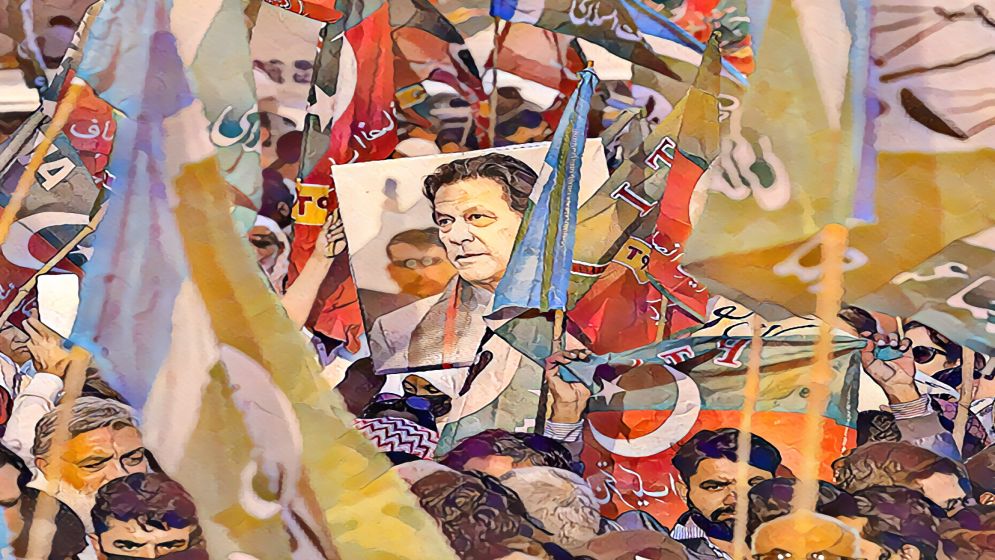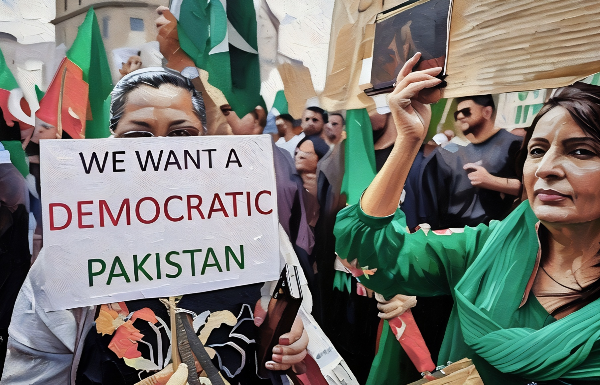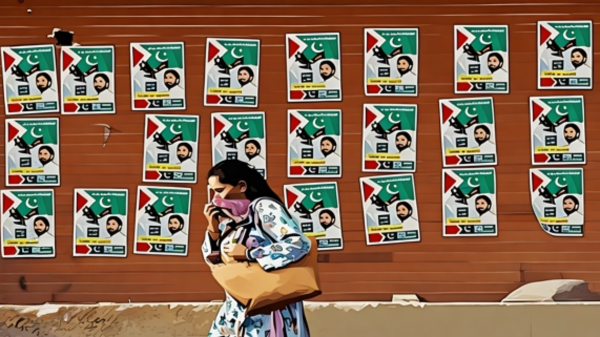Pakistan’s unfinished journey towards democratic transparency
Fayaz Naich
Publish: 23 Aug 2024, 11:20 PM

Following the end of British rule in the Indian subcontinent in 1947, Pakistan came into existence, marking a pivotal moment in its history.
Since then, Pakistan has experienced a turbulent political landscape characterized by military interventions, undemocratically dethroning of elected governments with the support of the judiciary, and imprisonment of the popular leadership of the country based on fabricated cases.
Throughout its history, Pakistan has grappled with the dominance of the military in its political affairs. Even during periods of civilian rule, the military has retained significant influence over national security, foreign policy and other affairs of statecraft, including managing the election results as per their designs. This dynamic has often undermined the transparency of elections and raised doubts about the fairness of electoral processes.
It is widely believed in Pakistan that the only fair and transparent elections in the history of the county were held in 1970. The Awami League, led by Sheikh Mujibur Rahman, decisively triumphed in East Pakistan (now Bangladesh). However, instead of handing over power to Sheikh Mujibur Rahman, the military junta under General Yahya Khan incarcerated him.
This unjust refusal to transfer power to the duly elected representatives of the people sparked widespread protests, eventually escalating into a brutal military crackdown in East Pakistan. This tragic sequence of events precipitated the Bangladesh Liberation War and the subsequent emergence of Bangladesh as an independent nation in 1971.
Understanding these historical complexities is crucial to comprehending Pakistan's ongoing quest for stable democratic governance amid persistent military influence. The legacy of past events continues to shape Pakistan's political discourse and aspirations for a more transparent and accountable democratic system.
The last five elections in Pakistan provide a stark illustration of the challenges to democratic processes in the country.

In the 2002
elections, General Pervez Musharraf's expulsion of popular leaders Benazir
Bhutto and Nawaz Sharif had a profound impact on Pakistan's political dynamics.
Benazir Bhutto, a pivotal figure as Pakistan's first elected female Prime
Minister and a prominent leader, tragically met her demise through
assassination in 2007, casting a shadow over the subsequent 2008 elections.
The 2013 elections were marred by incidents of violence and intimidation, such as the kidnapping of the son of former Prime Minister Yusuf Raza Gilani during his campaign. Liberal-minded parties like the Pakistan People's Party and Awami National Party faced severe restrictions on campaigning due to security threats.
The 2018 elections saw former Prime Minister Nawaz Sharif imprisoned, and there were allegations of manipulation involving the Results Transmission System (RTS), which raised doubts about the fairness of the electoral process.
Similarly, in the February 2024 elections, former Prime Minister Imran Khan's incarceration and his party Tehreek-e-Insaf being deprived of its electoral symbol have again sparked concerns about political interference and electoral integrity.
These events underscore ongoing challenges to electoral transparency and democracy in Pakistan. The recurring issues of political manipulation, intimidation, and legal constraints on opposition leaders have deeply affected the credibility of electoral outcomes and the democratic process as a whole.
Sheikh Mujibur Rahman, Zulfiqar Ali Bhutto, Benazir Bhutto, Nawaz Sharif and Imran Khan–all the popularly elected leaders of the country have faced the rage of Pakistan’s deep state. They all were titled as, “anti-state”, as “security risks” for the country and were imprisoned. Zulfiqar Ali Bhutto was hanged.
The tragic aspect of Pakistan's political history also lies in the opportunism of its political leadership.
For instance, after the 1970 elections, when the Pakistan People's Party came in second, Zulfiqar Ali Bhutto, could have prevented a national tragedy by gracefully conceding power to Sheikh Mujibur Rahman.
Instead, his resistance led to the Bangladesh Liberation War and immense suffering.

In the 90s, Nawaz
Sharif and Benazir Bhutto engaged in power struggles manipulated by deep state
actors. After the military coup by General Pervez Musharraf, Benazir Bhutto and
Nawaz Sharif were exiled from the country and both were banned from
participating in the 2002 elections.
Before the elections of 2008, Benazir Bhutto was murdered in Rawalpindi when she was coming out of his election campaign rally. Similarly, the political landscape saw shifts in 2013, where parties like the Pakistan People's Party and the Awami National Party faced obstacles while others, such as Pakistan Muslim League (N) led by Nawaz Sharif, found favor with the establishment.
On the other hand, in 2018, Nawaz Sharif was in jail and Imran Khan’s PTI came into power with the support of the establishment.
Now, in 2024, Imran Khan's party has fallen victim to accusations orchestrated by the "deep state," while PMLN led by Nawaz Sharif reaps the benefits of political maneuvering. His brother Shahbaz Sharif is the prime minister of the country and his daughter Maryam Nawaz is the chief minister of Punjab, the largest province of Pakistan.
The democratic process, epitomized by elections, represents the largest political engagement in any society. During election periods, the entire nation becomes a stage where not only political parties but also businesses, advocacy groups, and individuals from diverse backgrounds actively participate. This inclusive engagement underscores democracy's essence as a system where every citizen's voice can influence governance.
However, In Pakistan, elections every five years are an eye wash for the global superpowers and international financial institutions to get loans and aid, it has nothing to do with the “will of the people” because the deep state actors completely control the process and manipulate the election commission, judiciary and all other state institutions to get desired results.
—--
Fayaz Naich is an award winning Pakistani journalist. He is currently working as the Director of News & Current Affairs of Dharti TV, Karachi
